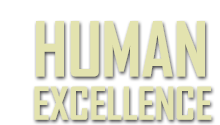- About us
- Knowledge
- พระพุทธศาสนา
- บรรดาปราชญ์ผู้ประเสริฐ
- ปรัชญาอินเดีย 1
- ปรัชญาอินเดิย 2
- อุปนิษัท
- คัมภีร์ปุราณะ
- ไศวนิกาย: ศาสนาพราหมณ์-ฮินดูที่นับถือพระศิวะเป็นเทพสูงสุด
- วิษณุปุราณะ นารายณ์อวตาร หรือ ทศวตาร
- รามายณะ
- มหาภารตยุทธ
- ภควัทคีตา
- ศาสนาเชน
- เทพปกรณัมกรีกและโรมันโบราณ
- อาณาจักรพระนครโบราณ
- อาณาจักรพม่าและมอญ
- ทวารวดี เมืองศรีเทพ ละโว้ สุพรรณบุรี อู่ทอง พิมาย เสมา
- อาณาจักรสุโขทัย
- อาณาจักรกรุงศรีอยุธยา
- สถานที่สำคัญ, วัดในและนอกเกาะกรุงศรีอยุธยา
- สถานที่ ศาสนสถานที่สำคัญในอุษาคเนย์และชมพูทวีป
- อาณาจักรล้านนา
- อาณาจักรล้านช้าง
- อาณาจักรจัมปา
- บทความและหนังสือดี ๆ
- ชนเผ่าและชาติพันธุ์ในอุษาคเนย์
- จารึกที่สำคัญในอุษาคเนย์
- พระราชประวัติ สาแหรก และทหารหาญของสมเด็จพระเจ้ากรุงธนบุรีมหาราช
- 44 ราชวงศ์ที่ปกครองในดินแดนประเทศไทยปัจจุบัน
- ปราสาทศิลปะกัมโพชในดินแดนไทย
- งานของท่านพุทธทาส อินทปัญโญ
- หลายชีวิต
- การบริหารและการจัดการ
- บัญชีการเงิน
- ชีวประวัติบุคคลสำคัญ
- ธนาคารคนจน
- คนบ้ารถถีบโบราณ
- สิ่งดี ๆ ที่ได้รวบรวมมา 1
- ท่องโลกกว้าง โดย อภิรักษ์โซคูลส์
- เด็กเก่งมาเจอกะลุงเก๋า - History of Ayutthaya
- Download
- FAQS
- Contact us
MENU


